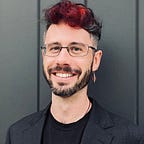In Support of UVM Classics
An Open Letter
To President Garimella, Provost Prelock, Dean Falls, the Board of Trustees, and current and future students:
When I heard of UVM’s decision to cut departments and programs in the Humanities, I was shocked and disgusted. It is obvious that the abolishment of smaller departments serves to perpetuate the misleading statistic of “low-enrollment majors” as a purportedly accurate metric of student engagement and field worth, not to mention shift and consolidate power and funding away from where it is needed most. I am not at all surprised these departments suffer from low enrollment- they have been strangled and marginalized for years, creating a self-fulfilling prophecy of decline.I write to you as an ‘ex-pat’ Vermonter, an alumnus, and a citizen deeply worried for the future of public education and for UVM students. This is naturally a highly personal topic for me, and I hope I can illustrate why studying the Classics was and is an integral part of who I am, and of foundational necessity to all curious and committed scholars. I truly believe that increasing the funding and staffing for Classics et al, is not just the right thing to do but is the only viable path forward for UVM to maintain its stellar reputation and legitimacy as a ‘public Ivy’.
I grew up outside Burlington and found my way into the UVM Classics department thanks to my patient and perceptive Latin and Greek teachers in high school, who helped me attend classes at UVM in Greek and philosophy during my senior year. As I became acquainted with the department, I stopped considering other institutions to earn my bachelor’s degree, as it became apparent that I had found much more than an education, but a second home and family of immensely talented educators and scholars.
Although I chose to major in Greek while at UVM, I did not study the Classics in isolation. I took elective classes in biology, chemistry, mathematics, and neuroscience, and served thousands of hours on UVM Rescue. I read Plato and Homer late at night returning from ambulance calls, and Thucydides working the nightshift at the UVM Medical Center. I now work in software and cybersecurity. Despite these disparate and seemingly disconnected pursuits, my study of Greek at UVM was and still is central to my personal growth and identity, and I bring the perspective, discipline, and love of learning that I developed in UVM Classics to all aspects of my life. I have so much gratitude for the wonderful faculty members who taught and guided me. It is impossible to overstate the richness of the Classics department that UVM is fortunate enough to have. The world-class faculty creates a culture of true learning and critical, independent thinking that any university in the world would be proud to call its own.
I would not try to convince any prospective student that choosing a path in the Humanities would be the easiest way to affluence, but rather that no amount of wages in the world can lead to a happy life and contented spirit. Each of us has our own unique wellspring for our soul- a religion, a passion, something beyond our daily life that drives us to our full potential. It is this understanding of the self and of others, these integral lessons about the human condition, that we learn studying Classics; indeed, from any true and genuine inquiry made for its own sake.
I know well that the constant call for STEM majors and the push for science and business degrees is a powerful source of external pressure, as is the necessity of remaining competitive in an era of debt-financed, for-profit education. Capitalism is a hard master, and greedily asphyxiates literature and philosophy as much as we allow. But it is precisely this environment that causes us to need the Classics, the Humanities, and the Arts more than ever, and for Universities to carry the torch as the world shrouds itself from self-knowledge and examination. In my own profession of software engineering and certainly in all the STEM fields, the need for the humanities is becoming ever more desperate. We have learned by now that technology is very much a Pandora’s box — with new life-changing developments come new avenues for cybercrime and war. With the control of pain came a crisis of addiction, and with the age of information came the age of misinformation. The connections to our own humanity become obscured by the pace of innovation and the relentless demand for profit. Our struggle is not in developing technology, but rather how we relate to it. We need to provide the humanities for their own sake, but those of us training to be doctors and nurses or engineers and scientists need them just as much. Without the wisdom of Socrates or understanding of our history, we are merely picking more Eden-grown apples and becoming victims of the unexamined life.
I ask you all to please consider and reconsider this decision to amputate the limbs of UVM’s rich and vibrant liberal arts communities. Such final action will not be easily reversed, and will clearly not provide much alleviation of the proposal’s extolled economic woe. It may provide a quick remedy to a diseased budget, avoiding any of the hard work of rehabilitation, but it will ultimately only serve to reduce the University in stature, in principle, and in education. Investing in the humanities is investing in humans: build it and they will come. My entire adult life, I have carried pride in my accomplishments as a student of the Classics at UVM. I would consider it an immense shame if my alma mater should so meanly lose what has always been humanity’s last best hope.
To all my teachers and mentors at the Classics department, thank you for everything.
